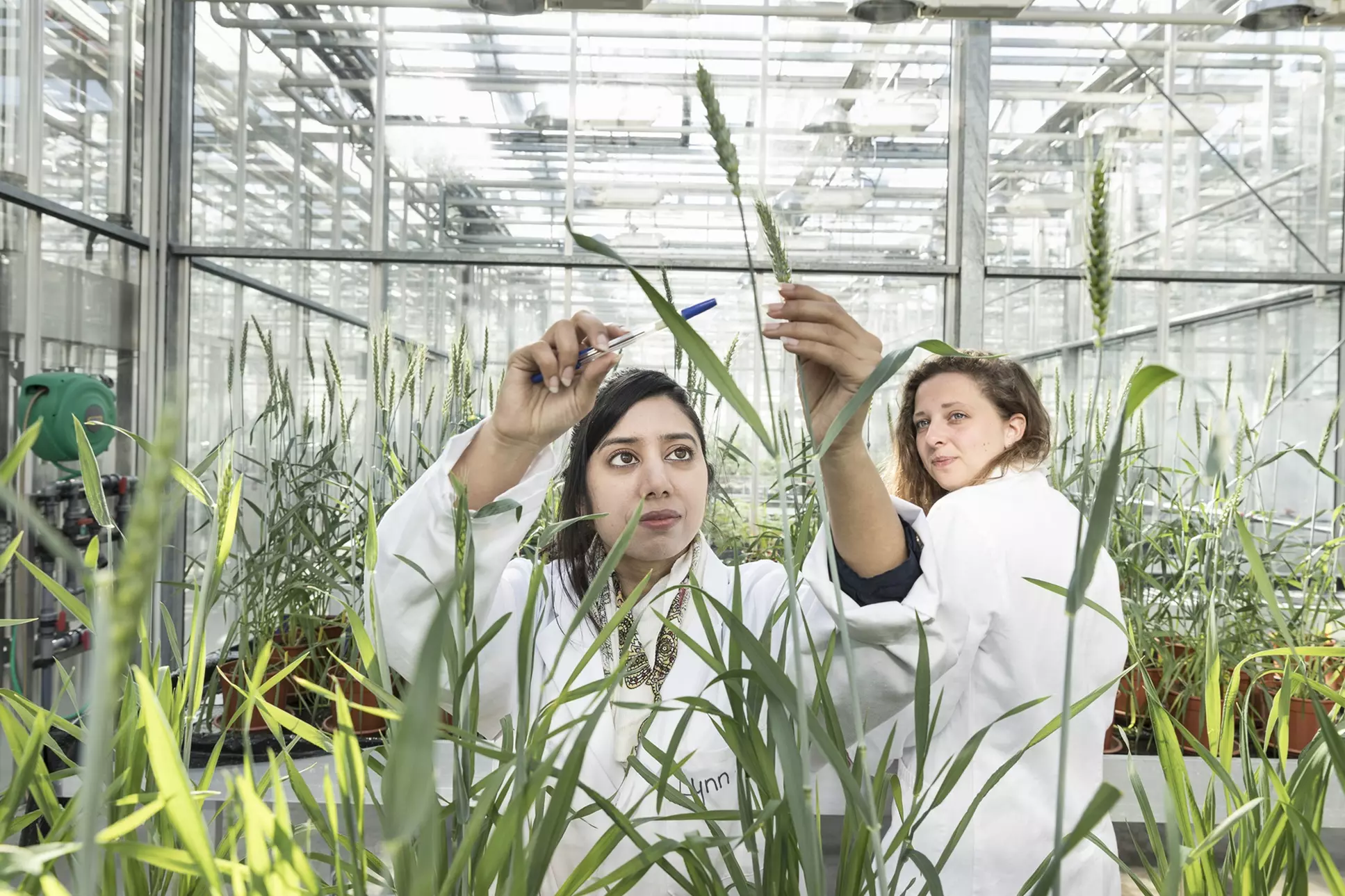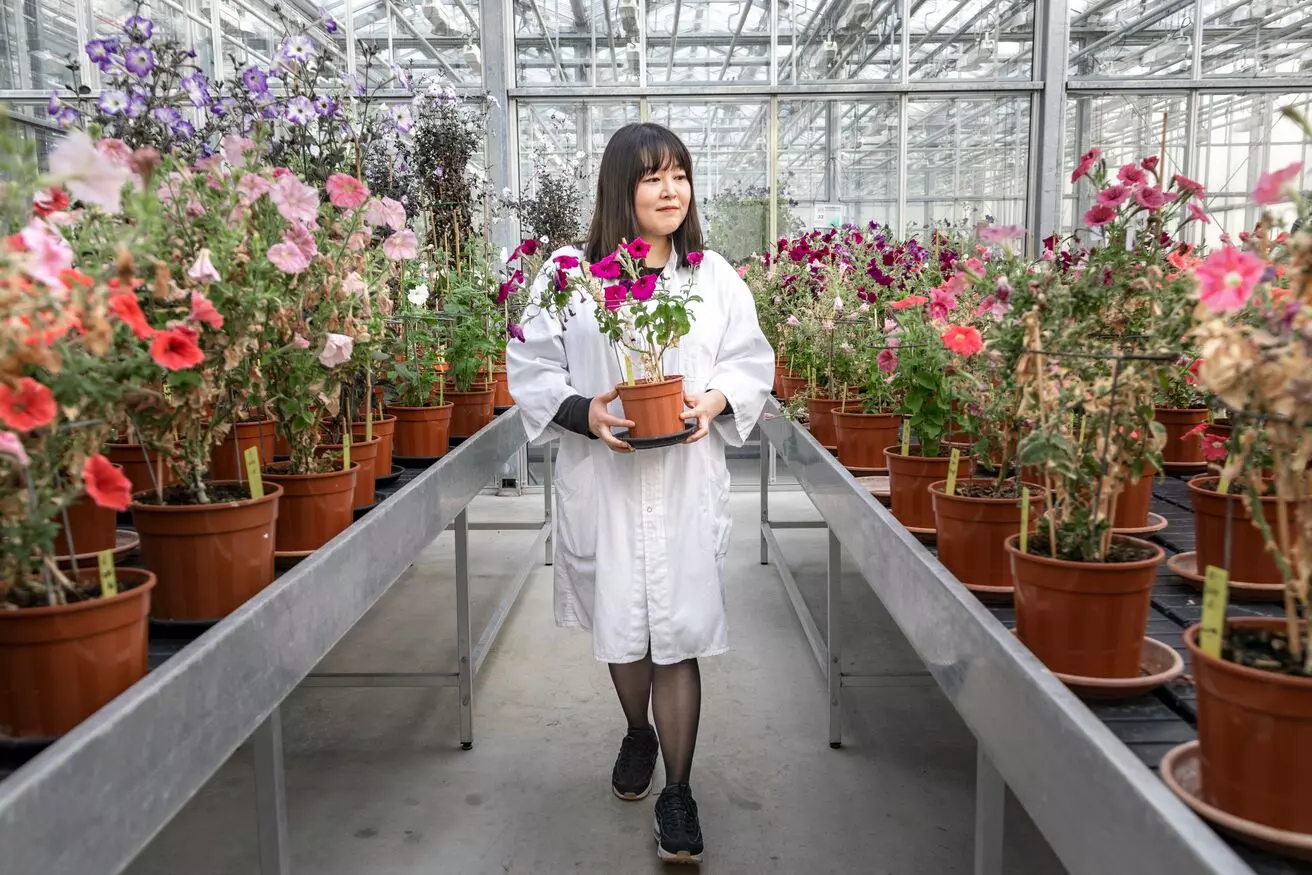
PhD Student Computational Modelling of Adolescents' Climate Friendly Choice
- Faculty of Social and Behavioural Sciences
- 13636
- Master's
- €2.901 - €3.707
- 38 hours
- Closes on10-01-2025

PhD Student Computational Modelling of Adolescents' Climate Friendly Choice
- Faculty of Social and Behavioural Sciences
- 13636
- Master's
- €2.901 - €3.707
- 38 hours
- Closes on10-01-2025
Working at the UvA
Join us!
The PhD track is part of the developmental psychology programme group. This group has a strong focus on experimental research and computational modelling to get a better understanding of how adolescents learn, decide, and are influenced by others. As a PhD student you will work together with a fellow PhD student working on the same project, but with a more experimental focus, as seen in this vacancy.
Join the project “How do intentions and outcomes shape adolescents’ climate friendly choices: a reinforcement learning approach”. A one-page summary of the project can be found here.

Working at the UvA
Join us!
The PhD track is part of the developmental psychology programme group. This group has a strong focus on experimental research and computational modelling to get a better understanding of how adolescents learn, decide, and are influenced by others. As a PhD student you will work together with a fellow PhD student working on the same project, but with a more experimental focus, as seen in this vacancy.
Join the project “How do intentions and outcomes shape adolescents’ climate friendly choices: a reinforcement learning approach”. A one-page summary of the project can be found here.
All about this vacancy
What are you going to do?
You will, in cooperation with your fellow PhD student:
Develop materials for a reinforcement learning task to assess climate-friendly choices;
Develop and test a computational model and estimation procedure in R;
Gather data in a diverse adolescent sample;
Pre-register studies, write results up in peer-reviewed journals, present them at (inter)national conferences;
Actively participate in the communication with adolescents to gather input on how to set up studies, and to discuss the implications of outcomes of these studies;
Develop an educational package for high school students end project (‘’profielwerkstuk”);
Devote 5% of your time to supervision of bachelor or master students performing research related to your project.
What do you have to offer?
You have a (research) master in the behavioural or cognitive or computer or sustainability sciences, or you will obtain the degree before the 1st of February 2025.
You have at least one year of programming experience in R.
In addition, you satisfy some (nobody fits all of the criteria) of the requirements listed below:
You have a genuine interest in computational modelling of human behaviour, for example, by means of reinforcement learning models;
You have a genuine interest in adolescent development, sustainability science, or behaviour change;
You have demonstrable experience in Bayesian modelling;
You are accurate, constructive, and creative;
You have good writing and presentation skills;
You value open science;
You have the ability to function well both in a team as well as independently;
You can start between the 1st of February and the 1st of April 2025.
What else do we offer?
The position concerns temporary employment of 38 hours per week for a maximum term of four years. The initial employment is for one year. Following a positive assessment and barring altered circumstances, this term will be extended to four years in total, which should result in the conferral of the doctorate. We will put together a curriculum which will also include the opportunity to attend training courses and both national and international events.
Part-time is negotiable, which will result in a longer contract with a maximum of 5 years. It may also possible to add a teaching component to the contract, which will also result in a longer contract, of approximately 4.5 years.
All about this vacancy
What are you going to do?
You will, in cooperation with your fellow PhD student:
Develop materials for a reinforcement learning task to assess climate-friendly choices;
Develop and test a computational model and estimation procedure in R;
Gather data in a diverse adolescent sample;
Pre-register studies, write results up in peer-reviewed journals, present them at (inter)national conferences;
Actively participate in the communication with adolescents to gather input on how to set up studies, and to discuss the implications of outcomes of these studies;
Develop an educational package for high school students end project (‘’profielwerkstuk”);
Devote 5% of your time to supervision of bachelor or master students performing research related to your project.
What do you have to offer?
You have a (research) master in the behavioural or cognitive or computer or sustainability sciences, or you will obtain the degree before the 1st of February 2025.
You have at least one year of programming experience in R.
In addition, you satisfy some (nobody fits all of the criteria) of the requirements listed below:
You have a genuine interest in computational modelling of human behaviour, for example, by means of reinforcement learning models;
You have a genuine interest in adolescent development, sustainability science, or behaviour change;
You have demonstrable experience in Bayesian modelling;
You are accurate, constructive, and creative;
You have good writing and presentation skills;
You value open science;
You have the ability to function well both in a team as well as independently;
You can start between the 1st of February and the 1st of April 2025.
What else do we offer?
The position concerns temporary employment of 38 hours per week for a maximum term of four years. The initial employment is for one year. Following a positive assessment and barring altered circumstances, this term will be extended to four years in total, which should result in the conferral of the doctorate. We will put together a curriculum which will also include the opportunity to attend training courses and both national and international events.
Part-time is negotiable, which will result in a longer contract with a maximum of 5 years. It may also possible to add a teaching component to the contract, which will also result in a longer contract, of approximately 4.5 years.
Your place at the UvA
At this department you will be working
This PhD project is located at the department of Developmental Psychology, University of Amsterdam, The Netherlands. It is supervised by Hilde Huizenga and Wouter van den Bos, both at UvA, and Jessica Schaaf (at Radboud UMC). You will work together with a fellow PhD who is supervised by Hilde Huizenga, Cameron Brick and Lucas Molleman. The supervisors create an open atmosphere in which everybody feels free to ask questions and make suggestions.
Organisational unit
Your place at the UvA
This is where you will be working
At this department you will be working
This PhD project is located at the department of Developmental Psychology, University of Amsterdam, The Netherlands. It is supervised by Hilde Huizenga and Wouter van den Bos, both at UvA, and Jessica Schaaf (at Radboud UMC). You will work together with a fellow PhD who is supervised by Hilde Huizenga, Cameron Brick and Lucas Molleman. The supervisors create an open atmosphere in which everybody feels free to ask questions and make suggestions.
Organisational unit
Important to know
Your application & contact
If you have questions regarding this position, please contact:
- Hilde Huizenga [email protected]
Do you recognize yourself in the job profile? Then we look forward to receiving your application by 10 January 2025. You may apply online by using the link below.
Applications in one bundled .pdf should include: (upload in the resume box)
a curriculum vitae;
a grade list for all bachelor and master course;
a letter of motivation.
If an ‘Error GBB451’ occurs, please click here for more information and help.
Diversity, Equity & Inclusion
Important to know
Your application & contact
If you have questions regarding this position, please contact:
- Hilde Huizenga [email protected]
Do you recognize yourself in the job profile? Then we look forward to receiving your application by 10 January 2025. You may apply online by using the link below.
Applications in one bundled .pdf should include: (upload in the resume box)
a curriculum vitae;
a grade list for all bachelor and master course;
a letter of motivation.
If an ‘Error GBB451’ occurs, please click here for more information and help.
Other interesting vacancies for you

PhD Position in Secure Multi-party Computation
- Faculty of Science
- €2.901 - €3.707
- Closes on15-04-2025
- Master's
- 38 hours

PhD Position: Concept Drift in Sensor-rich Environments
- Faculty of Science
- €2.901 - €3.707
- Closes on13-01-2025
- Master's
- 38 hours

PhD Position: Simulation Tool to Compare Outcomes of Treatments in Psychopathology
- Faculty of Social and Behavioural Sciences
- €2.901 - €3.707
- Closes on05-01-2025
- Master's
- 38 hours
Other interesting vacancies for you

PhD Position in Secure Multi-party Computation
- Faculty of Science
- €2.901 - €3.707
- Closes on15-04-2025
- Master's
- 38 hours

PhD Position: Concept Drift in Sensor-rich Environments
- Faculty of Science
- €2.901 - €3.707
- Closes on13-01-2025
- Master's
- 38 hours

PhD Position: Simulation Tool to Compare Outcomes of Treatments in Psychopathology
- Faculty of Social and Behavioural Sciences
- €2.901 - €3.707
- Closes on05-01-2025
- Master's
- 38 hours

Don't miss out on your dream job!

Don't miss out on your dream job!
This website uses cookies
We, and third parties, use cookies on our website. We use cookies to ensure that our website functions properly, to store your preferences, to gain insight into visitor behavior, but also for marketing and social media purposes (showing personalized advertisements). By clicking 'Accept', you agree to the use of all cookies. In our Cookie Statement. you can read more about the cookies we use and save or change your preferences. By clicking 'Refuse' you only agree to the use of functional cookies.
